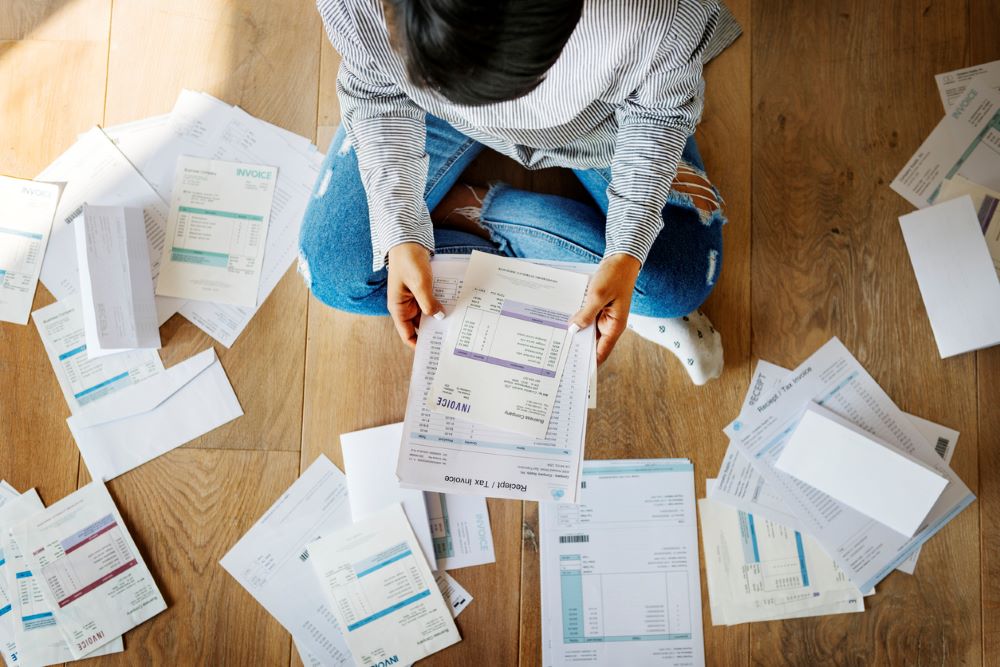What is Tax Debt?
Tax debt is any tax that you owe the IRS. This includes forgetting to pay, file, or even making a mistake on your taxes. Here we help explain tax debt and the best ways to handle it.
How Do I Know If I Have Tax Debt?
Here are a few ways to know if you owe back taxes to the IRS.
Notice Via Mail
The IRS may send a notice to you for various reasons. For example, you might receive a notice for balances owed, a request for information, a change in a tax return, a refund change, or to verify your identity. However, each letter from the IRS is serious and should be handled accordingly.
Online
If you have accrued tax debt, visit IRS.gov/account to access your federal account. This allows you to access up to 18 months of payment history, gather tax return information and view the amount you may owe.
Contact the IRS
If you have further questions regarding the notice you received, you can call the IRS at 800-829-1040 or visit IRS.gov.
How Can You Pay Tax Debt?
The longer your tax debt is left without being corrected, the deeper your problems may get.
There are a few different ways that you can go about paying your tax debt. You can pay in full or agree with the IRS to make monthly payments. The IRS offers a few different programs that can help you pay your debt.
File and Pay
It is important to file and pay whatever you can. Due to the “failure-to-file” penalty being greater than the “failure-to-pay” penalty, paying any initial amount can benefit you in the long run. After filing and paying, you can work with the IRS to determine if an installment plan is best for you.
Installment Plans
Payment plans are a viable option to pay off the debt you owe. Although interest can accrue during this time, the IRS allows a 72-month plan to resolve this issue if you cannot pay off your debt immediately.
Compromise
Applying to compromise can allow you to settle your debt for less than the total amount owed. Once the application is filed, the IRS assesses your income, ability to pay, equity of assets and expenses to determine if they deem you eligible for a compromise offer.
Loans
While this is not the most viable option, it is a resource for people to use if they can. Taking out a loan from a prequalified plan, such as a 401(k), can allow you to pay your debt over time. While you may lose the return on investment and have interest due, it can outweigh the detrimental effect of debt with the IRS.
If you are a business owner struggling with debt to the IRS, you can take out a bank loan to cover the amount owed. You can also take out another line of credit to cover these expenses.
Regardless of your payment route, resolving debt owed to the IRS can relieve you of any additional financial hardship in the future.
What Happens If I Can’t Pay My Tax Debt?
If you don’t pay your taxes debt, you can face a late-filing penalty. According to the IRS, the filing penalty is 5% of the unpaid taxes each month or part of a month that a return is late.
If unresolved, the IRS can seize your home business or any assets. However, there are options for you to choose from that cater to your situation best. For example, if you owe back taxes or are experiencing economic hardship and would have trouble paying essential living expenses if you paid off your tax debt, the IRS may consider the debt “Currently Not Collectible.”
However, the debt still exists and can accrue penalties and interest. If you have problems and need help with tax debt, consider consulting with a tax professional, tax lawyer or another tax advisor.
While you must be eligible for tax debt forgiveness, this can allow you to avoid any high penalties on overdue taxes. This can also benefit your financial status and credit scores in the long run. To find out if you qualify, contact a tax professional who can provide more information.
Can Tax Debt Impact Your Credit Score?
Tax debt and your credit score can be a tricky combination. Years ago, if the IRS filed a Notice of Federal Tax Lien against you, your credit would be affected due to your debt becoming a public record. However, since 2018, tax liens have been removed from credit reports.
If you pay your taxes through a loan or credit card, those payments will be recorded in your credit reports and reflected in your scores. Consider a credit monitoring service, such as MyScoreIQ services, to help you stay on top of your credit and finances.
Bottom Line
Tax debt can be overwhelming and scary. However, it doesn’t have to be. Plenty of options exist to resolve your debt without breaking the bank or your financial status.











